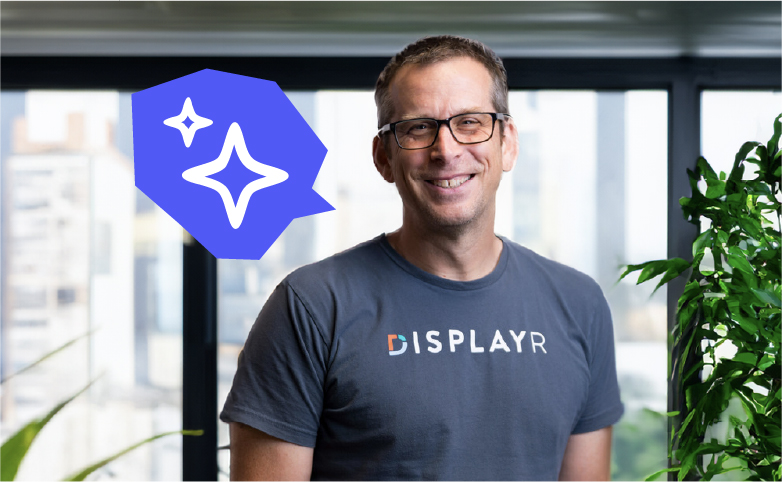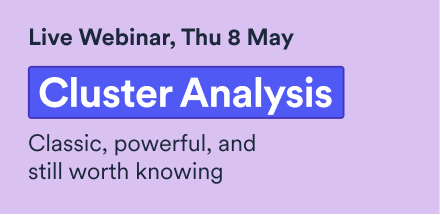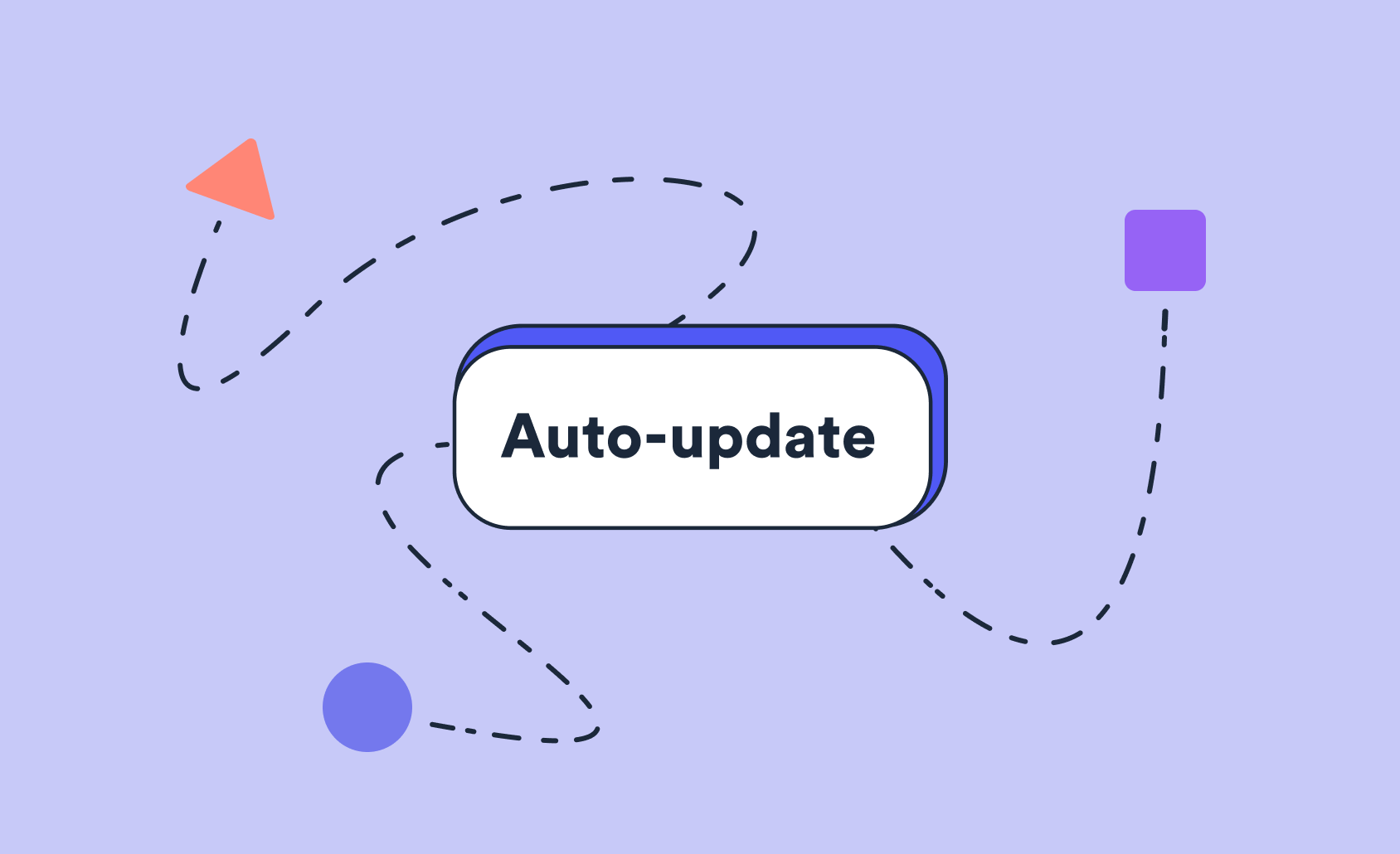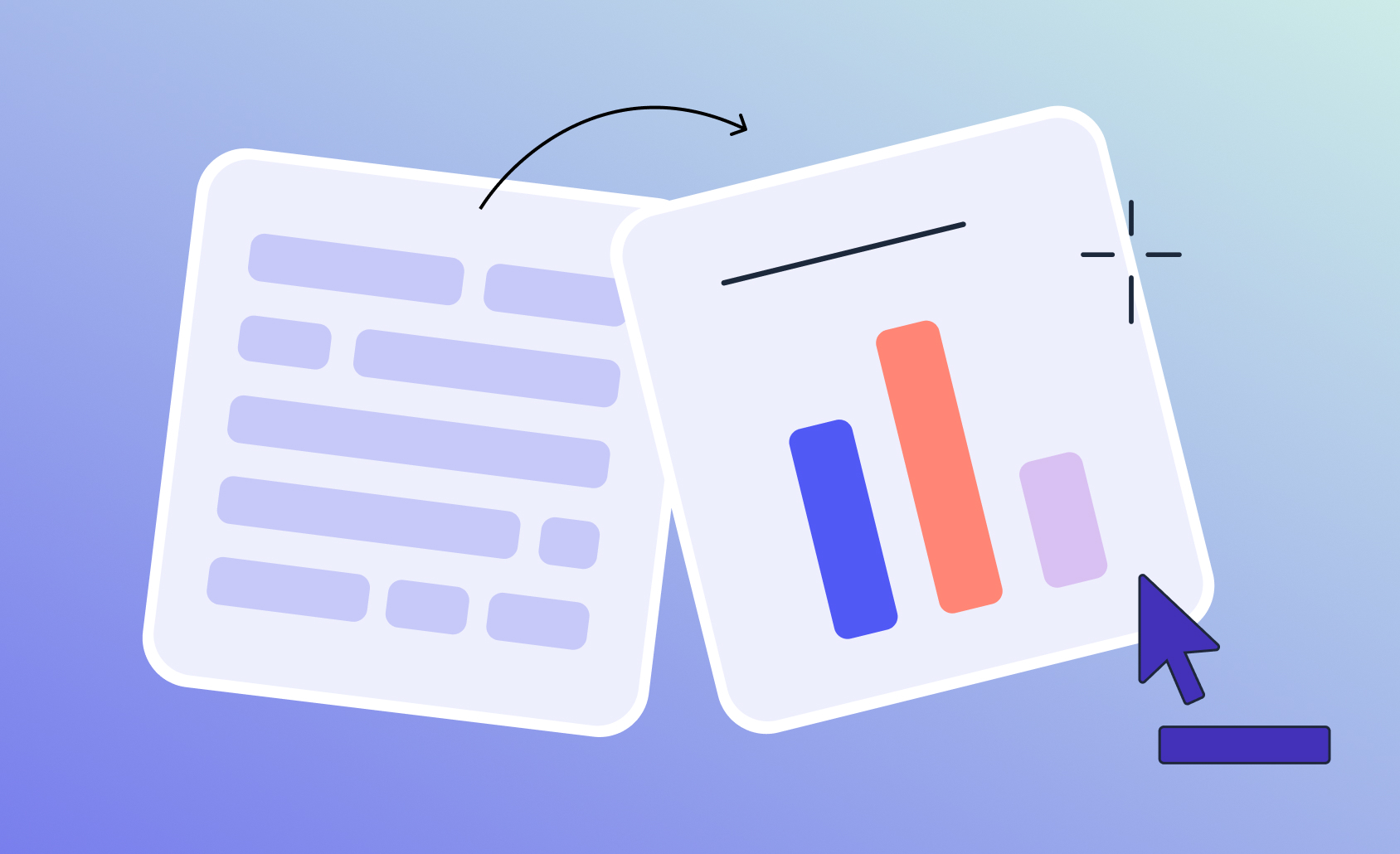

There's a lot we know about AI in market research. We know it's already one of the most significant technological advancements the industry has seen. We know it can automate monotonous tasks. We also know it gets things wrong—"hallucinating" to generate inaccurate results with great confidence.
There are also a lot of misconceptions about the role of AI in market research and how it might shape the future. To clarify some of these questions, we sat down with Displayr CEO Tim Bock to separate the facts from fiction.
Assumption: Everyone is using it
Verdict: Fiction
According to Bock, around 25% of Displayr's customers are using AI, 25% are experimenting with it, and 50% feel anxious about it. So what's causing this anxiety?
"Companies are under enormous pressure to prove they're succeeding with AI" Bock explained.
This push to implement AI at all costs may be causing problems across the industry.
In terms of the hype cycle, Bock suggested AI is now going through the trough of disillusionment, with interest starting to wane as initial promises fail to deliver and projects come undone.
Assumption: It is the 'magic bullet' for market research
Verdict: Fiction
AI's descent into the trough of disillusionment follows a period of inflated expectations and unfounded excitement. "
A lot of people's idea about AI is that it's magic," Bock said. "But magic doesn't exist."
In an ideal world, market researchers could ask a fully autonomous AI assistant to conduct a study and return with definitive results. Unfortunately, this is not the case.
Although he believes we will eventually get to a point where such automation is possible, for now, it's about collecting small wins.
"It's going to be small things that get automated. Then it will be sets of small things until eventually it's all automated," he said.
Assumption: AI makes mistakes
Verdict: Fact
Just like humans, AI makes mistakes. These mistakes—known as hallucinations—pose a major challenge for market researchers.
"Market researchers are there to report on what people think and believe. If you use AI and it tells you something that isn't what somebody thinks or believes, then you're probably building the wrong product," Bock said.
This means market researchers have to be vigilant when it comes to identifying errors in AI-powered analysis.
"You can already get the AI to automate all of your analysis, it just gets it wrong. The challenge is figuring out which parts it made up and which it didn't," Bock said.
"The only way you can determine if it has hallucinated is to manually do the analysis yourself."
One way to identify these hallucinations is to create components that are easier to check, such as showing the underlying quantitative tables used to generate a report.
Assumption: AI is saving time
Verdict: TBD
With hallucinations requiring rigorous manual checking, Bock explained that certain studies may actually take longer when assisted by AI as it exists today.
That said, there are still great efficiencies to be gained right now from using AI in market research, particularly in text analysis.
Displayr has been using generative AI to automatically organize raw text data into categories since 2018, meaning a process that could have previously taken days can now happens in minutes.
And you can expect further innovation from Displayr when it comes to how AI analyzes qualitative data.
"Next, you'll be able to take your open-ended data and broadly tell the AI what you want to learn, and it will go and do the analysis itself," Bock said.
These sorts of time-savers will allow market researchers to scale operations and conduct more research for clients, freeing up time for high-value tasks and boosting margins.
"I think a lot of people have expectations that the quality of market research is going to change," Bock said.
"I don't. I think it's just going to be that everything will happen much, much faster, meaning more research will happen. A study that might have previously taken two months could easily be reduced to days—or even less."
Find out how you could be spending more time analyzing with Displayr AI.
Book a demo of Displayr and we'll show you.



